
Indian Summer? Highs reach the 70s from next weekend through the first couple of days of October. I wouldn't be surprised to see a few more 80-degree highs for northern tier states over the next few weeks. Keep light jackets handy for morning hours, but you may still get some mileage out of shorts and T-shirts the last week of September.
"...Whatever the reason, the Reuters/Ipsos poll showed that the number of Americans who believe that the earth is warming is now 83 percent, compared with 75 percent in a similar poll one year ago. There were 1,134 adults surveyed for the research." - latest poll on climate change from ZDnet.com below.
"...Dr. Mehl stressed that even small changes in average global temperatures can produce noticeable changes in weather extremes. “We are shifting the odds toward more heat extremes and fewer cold extremes,” he said. In 2011 so far, the ratio is 3 record high temperatures for every record low temperature." - excerpt from an article below on climate change and extreme weather at climatesciencewatch.org.
"In short, rich countries will buy protection. If they need to abandon vulnerable cities like New Orleans or Venice, they will. The bigger problem is for poor countries. If Bangladesh floods or Nigeria dries up, they probably won’t cope well. But then our mental health in the west is built on not worrying too much about what happens to Bangladeshis or Nigerians." - from an article in Financial Times, "Climate Change: Who Cares Anymore?"
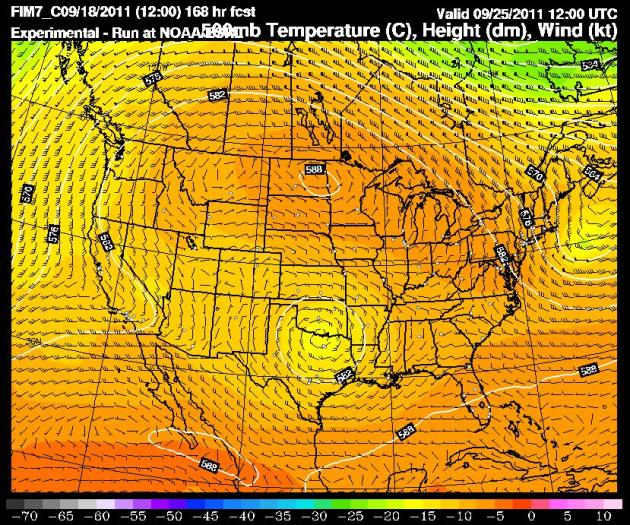
Don't Write Off Summer Just Yet. It's true, the Autumnal Equinox is Friday morning, when the sun's rays will pass directly over the equator. But the jet stream is forecast to lift north, allowoing warm air to surge across the Northern Plains. That should mean 70s, even a shot at 80 degrees by Sunday as far north as the Twin Cities.
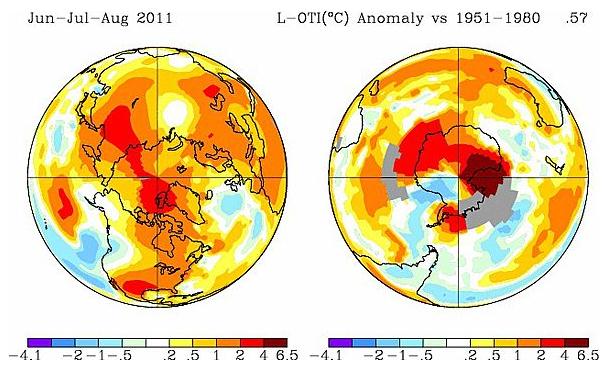
Fifth Warmest Summer On Record, According To GISS. AccuWeather has the story: "The summer of 2011 was the fifth warmest on record in the northern hemisphere since records began back in 1880, according to the Goddard Institute for Space Studies. The average land/sea combined surface temperature for the northern hemisphere during the June-August time period was 0.63 celsius above normal. The warmest summer was in 1998. By the way, the winter of 2011 (June-August) in the southern hemisphere was the third warmest on record. Globally, the June-August 2011 period was tied with 2005 for third warmest on record going back to 1880, according to GISS. Global temperatures averaged 0.57 celsius above normal. The warmest June-August time period globally was set back in 1998 (strong el nino year) and averaged 0.67 degrees celsius above normal."
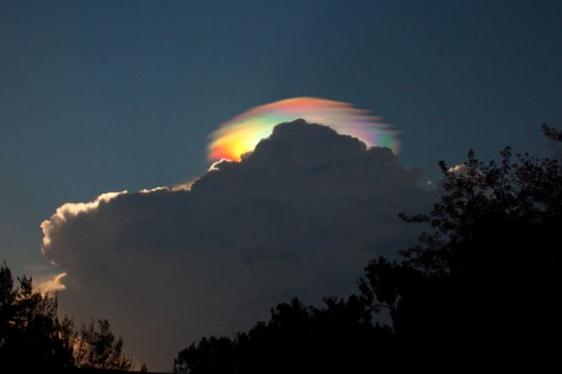
Photo Of The Day: "Pileus Iridescent Cloud". Thanks to Tricia Frostad for passing on this amazing example of "pileus", a cap cloud forming above an especially intense T-storm updraft. More from Yahoo News: "A pileus iridescent cloud was captured by photographer Esther Havens in Ethiopia. According to NASA this phenomenon is a result of "a group of water droplets that have a uniformly similar size and so together diffract different colors of sunlight by different amounts". See more of Esther Haven's images at estherhavens.com"
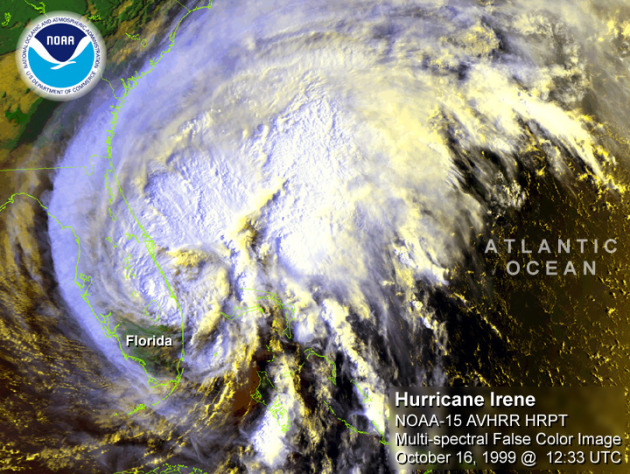
Effects Of Hurricane Irene And Tropical Storm Lee. This Op-Ed at stardem.com caught my eye: "Drenching rains from remnants of Tropical Storm Lee produced the second-largest water flows from the Susquehanna River into the Bay since Hurricane Agnes in June 1972. Flows from Agnes were measured at more than 1 million cubic feet per second. A major snow melt in 1996 caused a flow of more than 900,000 cubic feet per second. The peak flow from Lee was more than 750,000 cubic feet per second. This condition required that all of the floodgates on the Conowingo Dam be opened. Sediment, nutrients and bulk trash that had collected behind the dam for years were released into the Susquehanna. These loadings comprise a direct injection of pollutants into the Bay. To add insult to injury, more than 500 million gallons of diluted sewage washed into bay waters in Maryland alone and an estimated 200 million gallons poured in from Washington D.C. In addition, runoff from farms awash in livestock manure and fertilizer containing nitrogen and phosphorous, and the flow from city and suburban streets, lawns, and rooftops contributed more nitrogen and phosphorous, as well as garbage. These conditions create a pollution cocktail that produces the summer's annual "dead zone," (this year the largest on record.) Dead zones (caused by algae blooms that feed on the excess nutrients) develop every summer and generally end in the early weeks of fall. This year Hurricane Irene caused a premature mixing of the normally stratified oxygen depleted and oxygen rich layers, essentially removing the dead zone at least temporarily."

September The Peak Of Hurricane Season. In theory, September 10 is the day when hurricanes are most likely to strike the U.S. coastline. JCFloridan.com has a story about the hurricane season, to date: "Sept. 10 marked the peak of the 2011 Atlantic Hurricane Season, and with 13 named storms total so far, the rest of the season could continue to be busy, said national weather service meteorologistBryan Mroczka. “That was a very, very fast start to the season,” Mroczka said. The official forecast for the season calls for 14 to 19 total named storms. With about two months left in the season, that leaves a lot of possibilities. Typically, Mroczka said, September and even October are the busiest months of the season because of ocean surface temperatures are the warmest. “There’s no reason to think it’ll completely shut down at this point,” Mroczka said. Out of the 13 named storms this season, two have become hurricanes. The current system in the Atlantic is Hurricane Maria, which is projected to dissipate in the next few days somewhere near Nova Scotia. The season ends Nov. 30, but as Jackson County Emergency Management DirectorRodney Andreasen pointed out, in 1985 Hurricane Kate hit the Panhandle around Nov. 21."
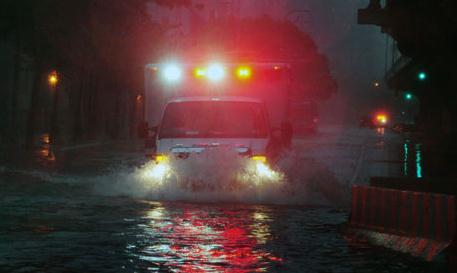
Congress Squabbles As FEMA Disaster Fund Dwindles. 2011 has set a record for the most (billion dollar) weather disasters on record...we're up to 10 and counting. FEMA is running out of money for storm survivors. SunSentinel.com has the story: "WASHINGTON — While billions of dollars of losses mount from an extraordinary year of natural disasters, the federal relief fund designed to help stricken communities has dwindled to $307 million as of Friday. Reimbursements to help Florida and other states recover from past disasters — and prepare for future hurricanes, floods and tornadoes — have been put on hold while Congress grapples with how to replenish the aid fund overseen by the Federal Emergency Management Agency. State and federal officials say they can still meet emergency needs. But a partisan clash over spending threatens to delay additional funds and raises concerns — amid hurricane season — about the nation's ability to respond when disasters strike again. "Given that there is likely to be more hurricanes and tornadoes or even earthquakes in parts of the country, the fact that the fund is running low has implications for the people who are facing these natural disasters," said Alka Sapat, an expert on disaster management and recovery at Florida Atlantic University. "I'm sure FEMA will be prepared, and Florida is also prepared. But it ends up being crisis spending, putting out fires rather than planning in advance for potential disaster, which is what the fund is intended to do."
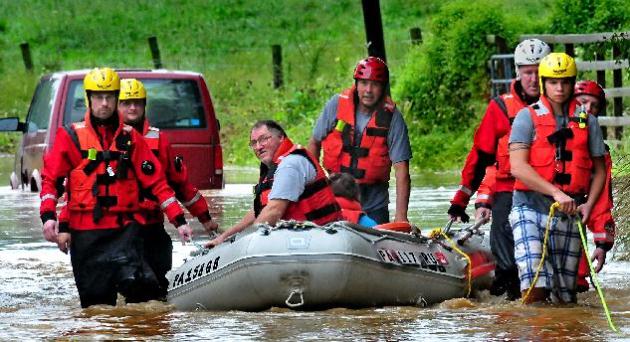
People On Coast Ask: Is This Still Worth It? The story from the Miami Herald: "PAMLICO BEACH -- J.R. Taylor makes his living pulling crab pots and scraping oysters from the muddy bottom of the Pamlico River. It is fickle work. At day's end, a good bounty might earn him a few $20 bills at a local fish shop. These are not good days. Hurricane Irene swept away half of Taylor's 300 crab pots late last month, robbing him of equipment worth $5,000. He had to move in with a neighbor after the storm flooded him out of his aunt's cinderblock cottage. "Something like this comes through and just wipes you out," said Taylor, 46. "Makes you wish you'd done life different." In a day, Irene brought floods that took away lawnmowers and gas tanks, soaked mattresses and televisions, and destroyed hundreds of houses. Hurricane winds snapped pines that crushed cars and mobile homes. In the months and years to come, Hurricane Irene may wash away a way of life."

Glass Igloo Let's You Sleep Under The Northern Lights. Neatorama has the details of one very cool hotel in Finland: "This has got to be the fanciest way to watch the the northern lights. Behold the luxury glass igloos of the Hotel Kakslauttanen in Finland's Arctic Circle: Link"
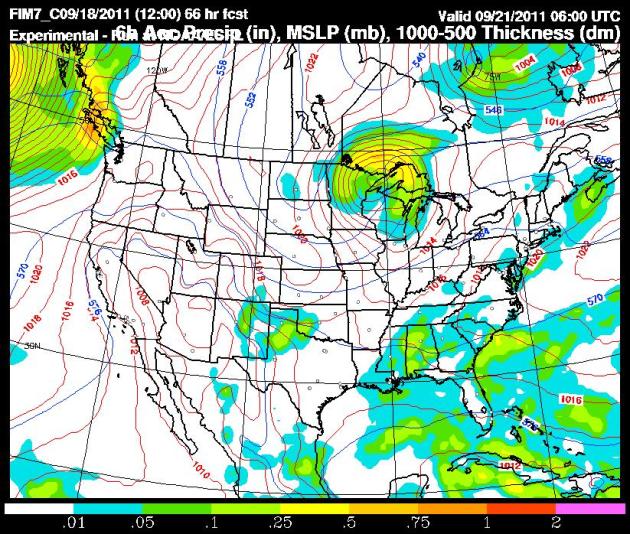
Nice To See You!
Life is a cruel teacher. I've learned (the hard way) to never say "nice to meet you." Bad idea. "But Paul, I met you 17 years ago! I was the one in the red shirt." Huh? I play it safe and say "nice to SEE you." Sadly, I can't remember names, but I do recall big storms, especially the ones that made me sweat.
Studies show the most accurate weather forecasts are a mix of computers and the "human element"; meteorologists editing the computers based on past experience and gut feel. The only way to become a better forecaster is to make forecasts, make mistakes, and learn from your mistakes. Yes, it's a painful learning curve. Just when you think you have it all figured out Mother Nature delivers a swift (public) kick in the Doppler.
The Summer of 2011 was the 5th warmest since 1880 for the northern hemisphere and possibly the most humid Minnesota summer since records began in 1891.
Climate Stories...
Americans Do Climate Change Flip-Flop, But Skeptics More Skeptical. ZDnet.com has the story: "Well, here’s a switch. Just weeks after a high-profile poll showed a rather laissez-faire attitude toward climate change, Reuters/Ipsos has released a new poll that show more Americans believe the world is warming. Perhaps it was Hurricane Irene. Or the continued searing heat in Texas. Maybe even the vehement declarations against climate change in recent Republican candidates debates. Whatever the reason, the Reuters/Ipsos poll showed that the number of Americans who believe that the earth is warming is now 83 percent, compared with 75 percent in a similar poll one year ago. There were 1,134 adults surveyed for the research. That poll also found that among those that believe warming is happening, 71 percent believe it is partly or mostly caused by humans. About 27 percent believe that it is completely due to natural causes. The other interesting trend: Those that consider themselves climate skeptics are even more skeptical than they were in 2010. The “certainty” of skeptics was 53 percent in 2011, compared with just 35 percent. Politically speaking, more Democrats than Republicans believe that global warming is happening."

Climate Change And Weather Extremes: Like Barry Bonds On Steroids. Climatesciencewatch.org has a good metaphor for extreme weather in a warmer world, comparing it to Barry Bonds (on steroids): "Think of it like this Dr. Meehl said: Barry Bonds had a certain average level of home run production in his baseball career before he started allegedly taking steroids. Once he started taking performance enhancers, his home run production increased, and he set the single season record for home runs in 2001. Now he holds the all-time record for the most home runs. If we watched Bonds hit any one of these home runs, would we be able to say that it was directly caused by his steroid use? “No, that’s impossible. But the odds of him hitting one are much higher; his base state has changed.” So cimate change has caused a similar shift of the odds in the atmosphere that will cause more extreme events to occur than if no such alteration existed. But all of this isn’t to say that extreme events occur only because of climate change. Climate change is increasing the frequency and intensity of extreme events, not their presence in the first place."

Huntsman Launches Fresh Attack On Perry's Stand On Climate Change. Here's the story in The Hill: "GOP White House hopeful Jon Huntsman is reviving his criticism of Rick Perry’s rejection of mainstream climate science. Here’s former Utah Gov. Huntsman, in an interview with Bloomberg TV, discussing which candidates are anti-science: “I’m not going to get into the name game. But suffice it to say if you’re going to run from climate science, if you’re going to run from other mainstream scientific principles, evolution among them, I think you’re suggesting to a whole lot of people out there that you’re out of the mainstream … Rick [Perry] has been outspoken in that regard. I think on science he’s out of the mainstream.”
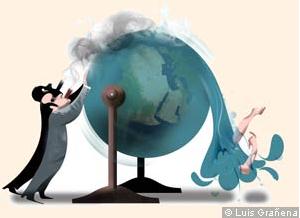
Climate Change: Who Cares Anymore? Here's a thought-provoking article from the Financial Times. Has the west given up, thrown in the towel, decided that adaptation is the only way forward? In other words, we don't have the political will to do anything now - let's just take our chances and see what a warmer world will bring? That seems to be the direction we're heading, for better or worse: "Almost everyone has given up. The question then becomes: what will happen? Nobody is sure. Almost all climate scientists think the outcome will be bad, perhaps catastrophic. They foresee more storms, droughts, floods and crop failures around the world, as Obama said in 2009 when he was still talking about these things. However, climate is far too complex a system to permit exact predictions. Nobody knows whether global temperatures will rise two degrees centigrade this century, nor whether that is the tipping point for catastrophe. When climate scientists make exact predictions, says Pielke, it’s usually a bid to focus the minds of politicians and voters. It hasn’t worked. Rich countries now have a semi-conscious plan: whatever happens, we’ll have the money to cope. We’ll build dikes, or pipe in more water from somewhere else, or turn up the aircon if it gets too hot. Our model is the Netherlands: the country below sea level protects itself against flooding through a network of dams, sluices and barriers. This costs about €45 per Dutch person per year. The Dutch think that even as climate change raises sea levels, their defences can cope for another four centuries. By then there’ll be new technologies."